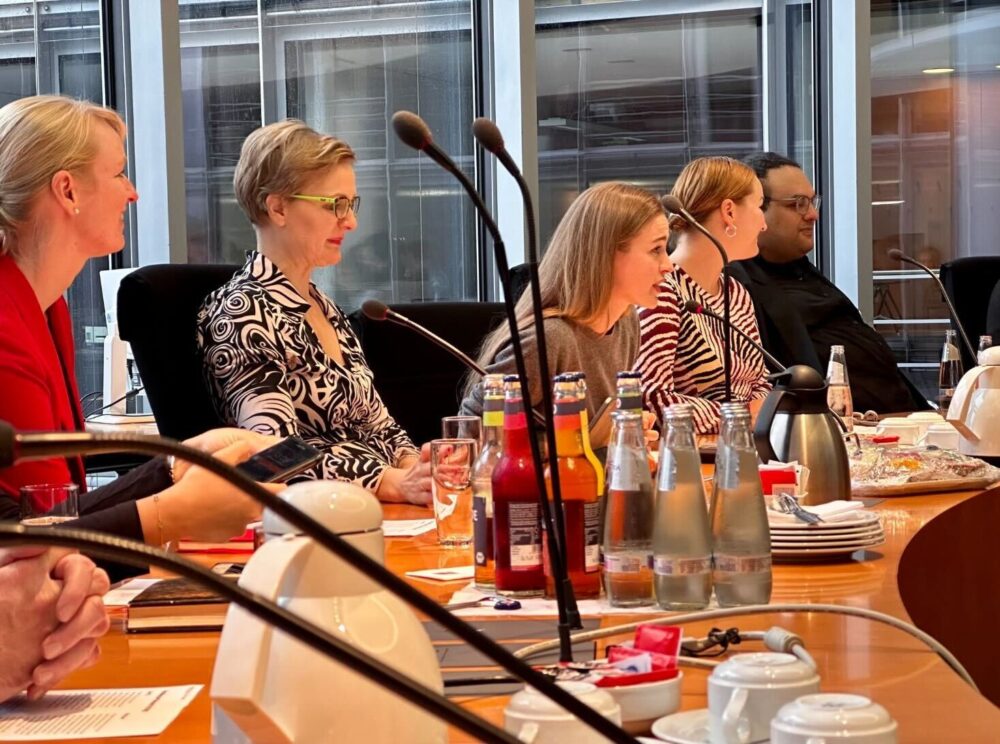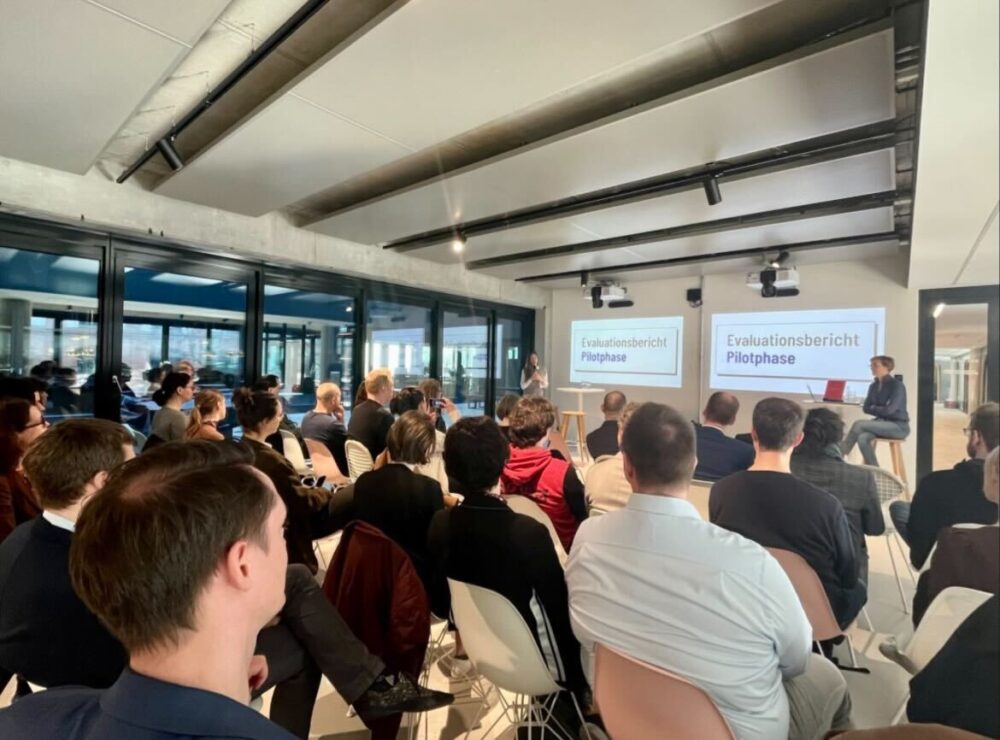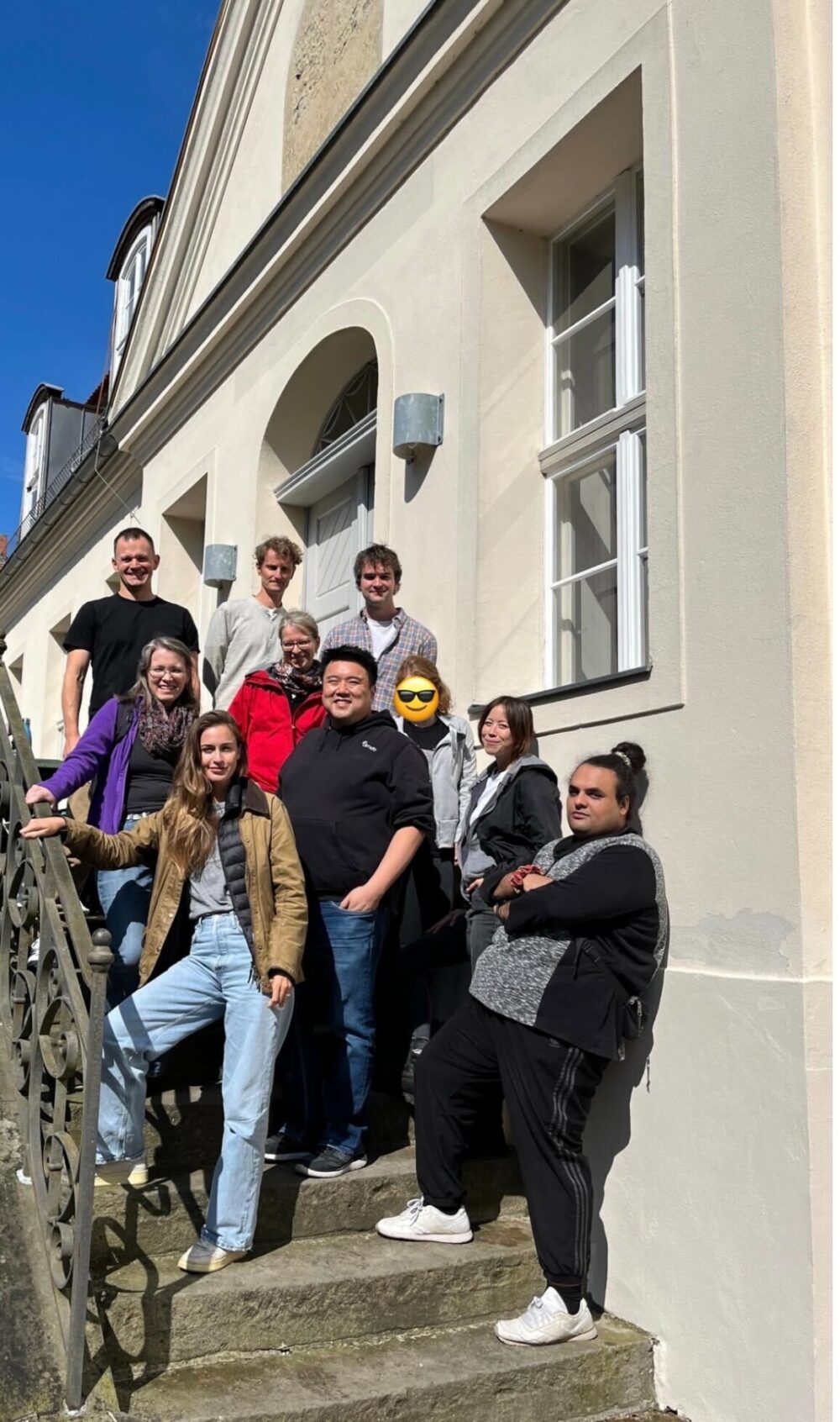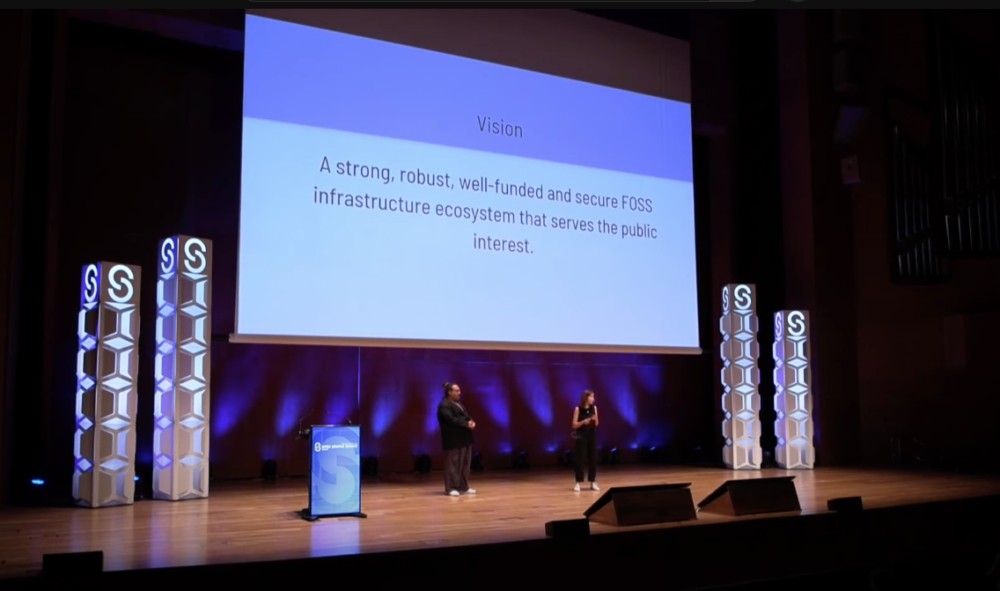
Our First Year
By Powen Shiah
In Agency
The Sovereign Tech Fund turns one year old today!
On 18 Oct 2022, Dr. Franziska Brantner (Parliamentary State Secretary for Economic Affairs and Climate Action) invited us to German parliament to present the Sovereign Tech Fund and the technologies and projects in our pilot investment round. We wanted to take the opportunity to look back at the first 12 months and see how far we've come.
STF’s mission is to sustainably strengthen the open source ecosystem in the public interest. What does that actually mean? We often point to the nine technologies and projects of the pilot round to showcase the breadth of digital infrastructure and how crucial these technologies are in different areas of our lives: The pilot projects were OpenMLS, Curl, OpenBGPd, Bundler/RubyGems, Wireguard, OpenPGP.js/GopenPGP, OpenSSH, Sequoia PGP and Fortran.
Meeting Pilot Round
On April 20 & 21, 2023, we invited the participants from the pilot round to Berlin for a special meeting. We collected feedback, exchanged experiences and shared about future plans for the STF. Afterwards, we hosted an event at GovTech Campus Germany with stakeholders from politics and civil society. This began with an address from Franziska Brantner, and continued with a presentation of highlights from the pilot phase. In a panel and Q&A, Niels Raijer (OpenBGPd), Raphael Robert (OpenMLS) and Daniel Huigens (OpenPGP) shared their experiences from the perspective of the participating FOSS projects.
At this same event, we shared our plans for the Bug Resilience Project to help FOSS projects reduce the risk that they contain bugs and improve their ability to respond to discovered bugs.
In the report we published evaluating the pilot phase, we summarize the insights & lessons from the first six months, including interviews with the maintainers.

Many people sitting in rows at the pilot round meeting in Berlin, looking at slides on screens, on which "Evaluation report pilot phase" appears.
40 Investments in FOSS Technology
In our first 12 months, STF invested a total €15.25 million from the German Federal Ministry for Economic Affairs and Climate Action into 40 technology projects. We commissioned a wide variety of work, from maintenance to security updates to workflow optimization, to help developers collaborate more efficiently. The STF program managers worked with maintainers and contributors to develop the work deliverables and timelines.
These 40 projects represent only a fraction of what our analysis determined to be critical digital infrastructure (open digital base technologies). The STF program team identified 195 technologies as worthy of investment, about 100 through our own research and 95 through submitted applications.
Uncovering Significant Need
Since launching the STF application platform at the end of March 2023, 142 projects applied for a total €95 million in support. The volume of submissions in six months demonstrates that our vision and programs resonate with FOSS communities worldwide, and that significant need exists. More than one third of applications came from Germany, another third from other EU/EEA countries.
In June, the STF launched the Contribute Back Challenges to test & develop new approaches together with OSS communities. The “innovation competition” format has streamlined and sped up the whole process, which proved very valuable. We’ll be announcing the selected projects tomorrow!
Growing the Team
The STF team is also growing: there are 10 of us now with very diverse (work) experiences. We are united by the goal of promoting security, innovation and competitiveness and creating a stable digital foundation for participation and democracy.

The STF team (ten people) standing on stairs outdoors on a very sunny day at Coconat in Bad Belzig.
Because our team has grown, we've been able to talk more about our mission. STF has been on stage at FOSS Backstage, the United Nations’s OPSOs for Good summit, PublicSpaces Conference, Chaos Communication Camp, Bitkom Open Source Forum, Open Source Summit EU, Internet Governance Forum, and other events
Tara Tarakiyee and Fiona Krakenbürger present on a large stage at the Open Source Summit Europe in Bilbao.
Full Steam Ahead
The STF started a year ago as a unique and tailor-made tool for strengthening the open source ecosystem. This marked the launch of an important new endeavor: digital services in the public interest. These strengthen digital sovereignty, innovation and competitiveness through investment in foundational, critical software. The approach initially outlined in the STF feasibility study is working and will continue to be scaled up.
Download the STF feasibility study
The STF is already seen as a model for similar ventures, and we want to continue to serve as a blueprint for others active in this area. There is a huge need, which has only become clearer with our experiences in the first year. In our second year, we’ll continue working on building up STF as an effective and impactful institution, supporting the much-needed work on critical open source software. We’re drawing up other exciting plans and ideas, stay tuned!



